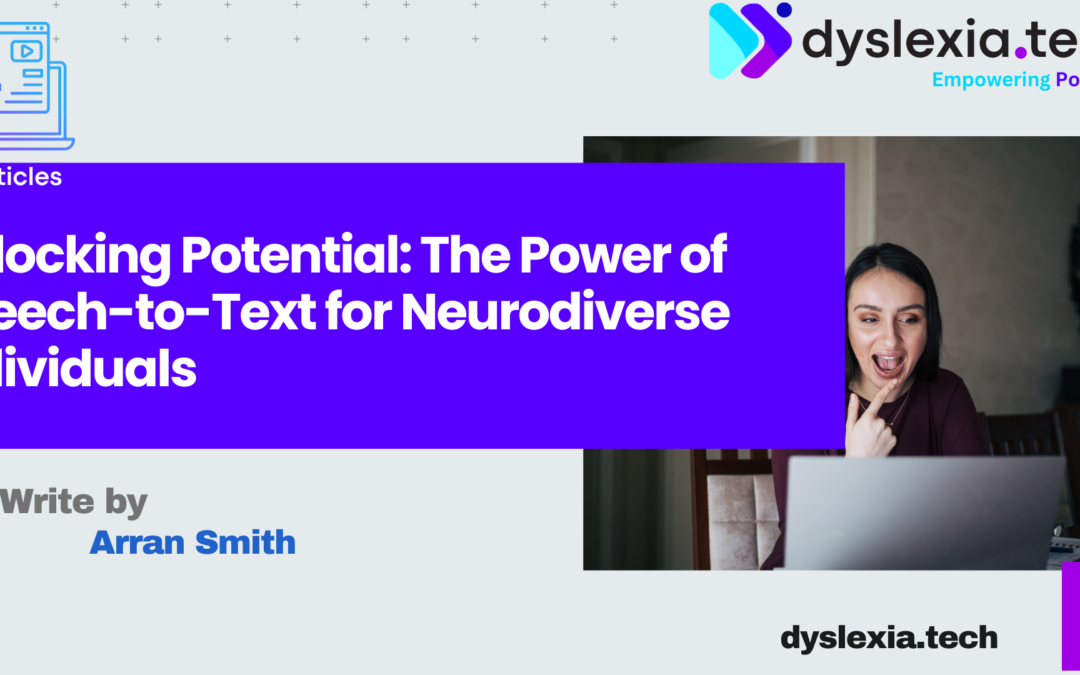
In today’s fast-paced world, communication is key, and for professionals, clear and effective communication can make all the difference. However, not everyone communicates in the same way, and for those with dyslexia and neurodiverse conditions, written communication can present unique challenges. This is where the supportive technology of Speech-to-Text comes to the rescue, offering a myriad of benefits for individuals in both educational and workplace settings.
The Challenge of Traditional Text-Based Communication
For those with dyslexia and neurodiverse conditions, reading and writing can be daunting tasks. Traditional written communication often poses hurdles that can hinder their ability to express themselves, understand information, and engage effectively with their peers and colleagues. The frustration and stress that can arise from these challenges are real and palpable.
Embracing Speech-to-Text Technology
Enter Speech-to-Text technology, a game-changer that has the potential to level the playing field for neurodiverse individuals. This remarkable tool converts spoken words into written text, offering a lifeline for those who struggle with traditional written communication.
Enhancing Education
In educational settings, Speech-to-Text technology can be a valuable asset. Students with dyslexia can use it to transcribe lectures, take notes more easily, and turn their spoken thoughts into written assignments. This empowers them to focus on understanding the content rather than grappling with the mechanics of writing.
Empowering the Workplace
In the professional world, effective communication is paramount. Neurodiverse individuals can harness Speech-to-Text to participate fully in meetings, create polished reports, and correspond seamlessly with colleagues. This fosters an inclusive work environment and ensures that talent is recognised, regardless of differences in communication styles.
The Benefits are Clear
1. Enhanced Productivity: By removing the barriers associated with traditional writing, Speech-to-Text technology allows neurodiverse individuals to work more efficiently and contribute their valuable skills to the workplace.
2. Reduced Stress: The anxiety and frustration often associated with written communication challenges are significantly reduced, promoting better mental well-being.
3. Inclusivity: Embracing Speech-to-Text technology creates a more inclusive and diverse workspace where every individual’s unique abilities can shine.
4. Improved Learning: In education, students can absorb and retain knowledge more effectively when they can focus on the content, rather than struggling with writing.
Embracing the Future
As we move forward in an increasingly digital world, it is imperative that we embrace technology that promotes inclusivity and empowers every individual, regardless of their neurodiverse condition. Speech-to-Text technology is not just a tool; it is a bridge that connects the potential of neurodiverse individuals with the opportunities of the modern world.
Let us champion Speech-to-Text as a powerful ally in the pursuit of a more inclusive and accessible world for all. Together, we can unlock the potential of neurodiverse individuals and celebrate their unique talents.

